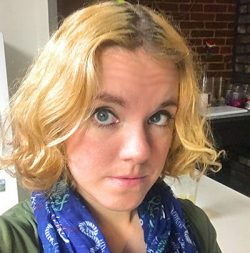Accelerated Nursing Program Basics


What Is an Accelerated Nursing Program?
Accelerated nursing programs are designed for people who already have a bachelor’s degree in any other discipline. They allow you to use the credits you earned as part of your current degree toward a Bachelor of Science in Nursing (BSN) degree—the most common degree held by registered nurses (RNs).
In this Article
How Does it Work? | How Long Does it Take? | Classes | Online Programs | Is This Program Right for Me? | FAQs
This means you won’t have to start from scratch—you’ll be able to jump straight into nursing courses instead of spending four years pursuing the traditional BSN path. The programs are intensive and demanding, but they can allow you to make a career move in less than two years.
How Do Accelerated Nursing Programs Work?
Accelerated nursing programs allow you to earn a BSN degree quickly. You’ll complete the same nursing courses and the same amount of clinical hours as you would in a traditional BSN program, but you’ll be able to use your previous credits to meet non-nursing requirements. This allows you to focus on your nursing coursework, begin the clinical portion of your degree sooner, and potentially earn your BSN in less than two years.
An accelerated nursing program allows you to begin the clinical portion of your degree sooner and potentially earn your BSN in less than two years.
You will need to meet some prerequisites before you begin an accelerated program. Your previous degree will likely influence what prerequisites, if any, are required.
“Before students can begin our program, their college transcripts are reviewed to ensure that all prerequisites are met,” says Maureen C. Creegan, EdD, RN, nursing program director at Dominican College in Orangeburg, New York. “Almost all students meet the arts and social sciences requirements; most do not meet the natural sciences requirements, including anatomy and microbiology. To assist students, we offer back-to-back prerequisite courses just prior to the start of the accelerated program.”
Typical science prerequisites include:
- Biology I
- Organic Chemistry
- Microbiology
- Inorganic Chemistry
- Statistics
How Long Does it Take?
Accelerated programs have a very short completion time, generally between 11 and 18 months. Completion time includes the 700 to 800 hours of clinical time most programs require. The programs are full-time and intensive, with no breaks between course sessions. Additionally, because you already have a bachelor’s degree, you will only need to take nursing courses.
Accelerated programs may have a very short completion time, generally between 11 and 18 months.
What Will My Classes Look Like?
Your time in the program will be focused on nursing courses. You won’t be taking any general education or elective courses. Instead, you’ll take classes that will prepare you to provide safe and effective nursing care to patients.
Common classes include:
- Pharmacology
- Medical Terminology
- Nursing Ethics
- Introduction to Professional Nursing
- Care Planning and Management
- Pathophysiology
- Geriatrics
- Pediatrics
- Cardiac and Critical Care
- Health Assessment
- Community Health
- Mental and Behavioral Health
You’ll also complete supervised clinical hours at a local medical facility. Your clinical hours will give you real-world experience with patients and the skills you’ll need in a nursing role. You’ll be supervised and guided by an experienced nurse who will assist and teach while you complete your hours.
Are Online Accelerated Programs Available?
Many schools offer students the ability to complete their accelerated program courses entirely online. Your clinical hours, however, will need to be completed in person at a healthcare facility. Many students find online nursing programs more convenient than traditional campus learning. You can attend classes on your own schedule without needing to be in a classroom during set hours. This makes it a great fit for students with families and other obligations.
It’s important to note that an online accelerated program will still be intensive and demanding. You might be able to do your coursework at late hours or on the weekends, but you will still be committing to a heavy workload.
Is an Accelerated Nursing Program the Same as a Bridge Program?
Both accelerated nursing programs and bridge programs offer paths to nursing degrees, but they are very different. Accelerated programs are designed for students who have a bachelor’s degree in another area. It allows them to take nursing courses at a fast pace and earn their BSN quickly. They aren’t meant for people with prior nursing experience.
In contrast, bridge programs are designed for current nurses who want to further their nursing education and seek a higher-level. For example, a licensed practical nurse (LPN) can use a bridge program to earn their BSN without needing to spend four years in school. Similarly, an RN who has earned an Associate Degree in Nursing (ADN) can pursue their Master of Science in Nursing (MSN) degree with an RN-to-MSN bridge program.
What do they have in common? Both accelerated nursing programs and bridge programs save students time and money by allowing them to earn their degrees more quickly than they would pursuing traditional pathways.
Is an Accelerated Nursing Program Right for Me?
Accelerated nursing programs are best for people who are certain they’re ready for a career change. The programs are a serious commitment: You’ll need to be prepared for an intense and demanding academic environment.
Students come to accelerated programs from a variety of backgrounds. Many students decide to pursue nursing after spending years in other people-oriented careers such as teaching or human services. Often, people coming from these fields make the change to nursing because it offers more opportunities to advance, take on leadership roles, and increase earnings.
Many students decide to pursue nursing after spending years in other people-oriented careers such as teaching or human services.
However, students of any background can be successful in an accelerated nursing program. An accelerated program could be right for students who initially pursued business, English, political science, or any other discipline. The dedication to a future nursing career and the motivation to succeed matter more than your individual academic or career background.
Real Nurses Who Pursued Accelerated Nursing Degrees
Nursing is a fast-paced and demanding career. It often draws compassionate people who are dedicated to helping others. People who make the switch to nursing later in their careers are often motivated by the need for change, and also by the appeal of nursing as a field. Students who apply to accelerated programs are generally adults who are ready to move on from their current jobs due to lack of growth or burnout. It is common for students to be drawn to nursing after experiences with nurses, either personally or professionally.
Amanda Criner is a Chicago-based RN who also holds journalism degree. Before entering her accelerated nursing program, she was teaching preschool and was unhappy with her job. After her father spent time in the hospital, Criner realized going back to school to become a nurse might be a great career move.
“The nurses were amazing,” she says. “They were smart, and they cared about my dad and us. I said, ‘I think I can do this.'”
Jessica Mooney, a Boston-area RN who originally earned a bachelor’s degree in communications, was inspired to change careers after working with RNs at a hospital.
“My first job was working as an administrative assistant in a large teaching hospital in Boston in the neonatal intensive care unit,” Mooney says. “Working alongside the clinicians, especially the (neonatal) nurses, made me want to enter the field.”
Accelerated Nursing FAQs
Going back to school is always a big decision. One of the best ways to ensure you’re making the right choice is to ask questions and gather information.
Yes. Your accelerated degree is the same BSN earned by traditional BSN students. You’ll be able to earn the same degree that you need to be able to take the National Council Licensure Examination (NCLEX-RN) exam and earn your license to become an RN. In fact, you might even have an advantage. The AACN reports that some employers look for students with accelerated nursing degrees because of their previous work experience and maturity.
Criner agrees. “You have this advantage. You had a life before,” she says. “As someone with more experience, I’m more apt to say, ‘Let’s find a solution.'”
Yes, there will be math and science classes. The exact number will depend on your program and on how much math and science you took as part of your current bachelor’s degree. You might need to take math or science prerequisites before beginning your accelerated program if your current degree included very few math or science credits. That might sound intimidating, but your experience might help more than you think.
Criner’s advice? “Dive in and take a class to see how it is.”
You can enroll in a community college math or science class to knock out a prerequisite and refresh your skills. An online class can be a great way to work at your own pace, especially if you’re nervous about the material. Plus, you can take advantage of free online workbooks, skill tests, and even video lessons that help you learn.
Accelerated nursing programs are very competitive. Most schools will require at least a 3.0 GPA and a bachelor’s degree from an accredited school. Additional requirements will depend on the school and on your current degree. You might also need to complete an interview or admissions exam. Some schools will screen students before admission to ensure they’ll be able to manage the demands of the program.
“Due to the intensity of the program, an interview was added to the admission process to better screen students,” says Maryann Forbes, Ph.D., RN, Accelerated Baccalaureate Program Director at the State University of New York-Stony Brook, describing the admissions process her program uses. “Faculty feel that the interview and ongoing mentoring are key components to student success.”
You’ll be eligible to sit for the NCLEX-RN once you’ve completed your program. Together with your degree, a passing score on the NCLEX-RN will allow you to apply for licensure in your state. You’ll need to send proof of your education and your test results to your state’s nursing board to become an RN. Each state has its own renewal requirements you’ll need to follow to keep your license in good standing.
Accelerated nursing programs are designed with career changers in mind. Although these programs are challenging and demanding, students from diverse career backgrounds can consider them. You don’t need to be intimidated or worry that your current degree isn’t a strong enough background. Students with both bachelor of arts (BA) and bachelor of science (BS) degrees are able to complete accelerated programs and make a career change.
Plus, many employers look at graduates of these programs favorably. That makes them a great way to change your career but keep the advantages of your experience. You’ll be able to use your current degree to earn your BSN more quickly, and you’ll be able to use your current job experience in your nursing career. Together, these factors make accelerated programs a fantastic fit for career changers.
Only you can decide if an accelerated nursing program makes sense for your life and your circumstances. However, if you want to earn your BSN and begin working as RN quickly, they might be a great fit.
“The program was the most challenging thing I have ever completed in my life,” Mooney says, “but still to this day, I smile when I see my diploma.”
“People think it’s pretty great that you went back to school,” Criner says. “It means more to people. We need nurses with experience in the world. Start by having the confidence you can do it.”




